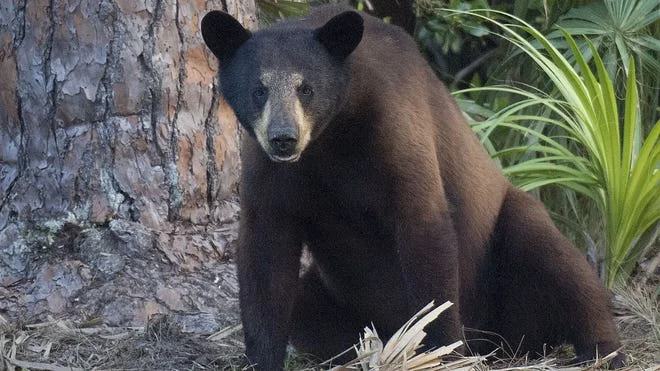
Could Florida’s Black Bears Soon Be in the Crosshairs Again?
In a move that has ignited fierce debate, Florida wildlife officials are proposing to reopen black bear hunting after a decade-long hiatus, raising questions about conservation, public safety, and ethical wildlife management. This development comes amid growing human-bear conflicts, including the state's first fatal attack. As advocates warn of potential massacres, the plan highlights the delicate balance between protecting endangered species and addressing population pressures in a rapidly developing state.
The Florida Fish and Wildlife Conservation Commission (FWC) released draft rules earlier this year for a potential three-week hunt, aiming to remove up to 187 bears from an estimated population of 4,000. Supporters, including some hunters and ranchers, argue that this is a necessary tool for controlling overpopulation and reducing conflicts, such as bears raiding garbage bins in residential areas. Joe Cooper, a Hendry County rancher, emphasized the environmental benefits: "There’s just too many of them running around out there, and without a population check, we’ll see rampant disease."
However, opponents like Katrina Shadix of Bear Warriors United see it as a step backward. They point to the chaotic 2015 hunt, which was halted after just two days when 298 bears were killed—far exceeding initial expectations and including protected mothers and cubs. Shadix criticized the new proposal for lacking oversight, such as mandatory check-in stations, calling it "a dangerous distraction from coexistence." The rules would allow hunting dogs, baiting, and self-reporting of kills, which critics argue favors trophy hunters and could lead to unchecked slaughter.
A recent fatal bear attack in Collier County has further fueled the controversy, with some viewing it as justification for the hunt. Yet, experts like Chuck O’Neal of Speak Up Wekiva argue that the real issue is habitat loss due to urban sprawl, not an overabundance of bears. "Subdivisions are invading bear habitat, not the other way around," he said, urging better waste management over lethal measures. Comparisons to the 2015 hunt reveal ongoing concerns: back then, the bear population was estimated at over 4,000, and it's similar today, yet advocates question the science behind current estimates, which rely on outdated data.
As the FWC prepares to vote on the proposal, the debate underscores broader tensions in wildlife policy. While the agency touts the black bear's recovery as a conservation success, critics accuse it of prioritizing hunters' interests over ecological balance. This could set a precedent for how Florida handles other species amid climate change and development pressures.
In the end, this proposal forces us to confront a critical question: Is hunting the best way to manage wildlife, or does it risk unraveling decades of conservation progress? As Florida weighs these options, the outcome could reshape attitudes toward nature in the state. What are your thoughts on this heated issue? Share your views in the comments below and help spread the conversation.